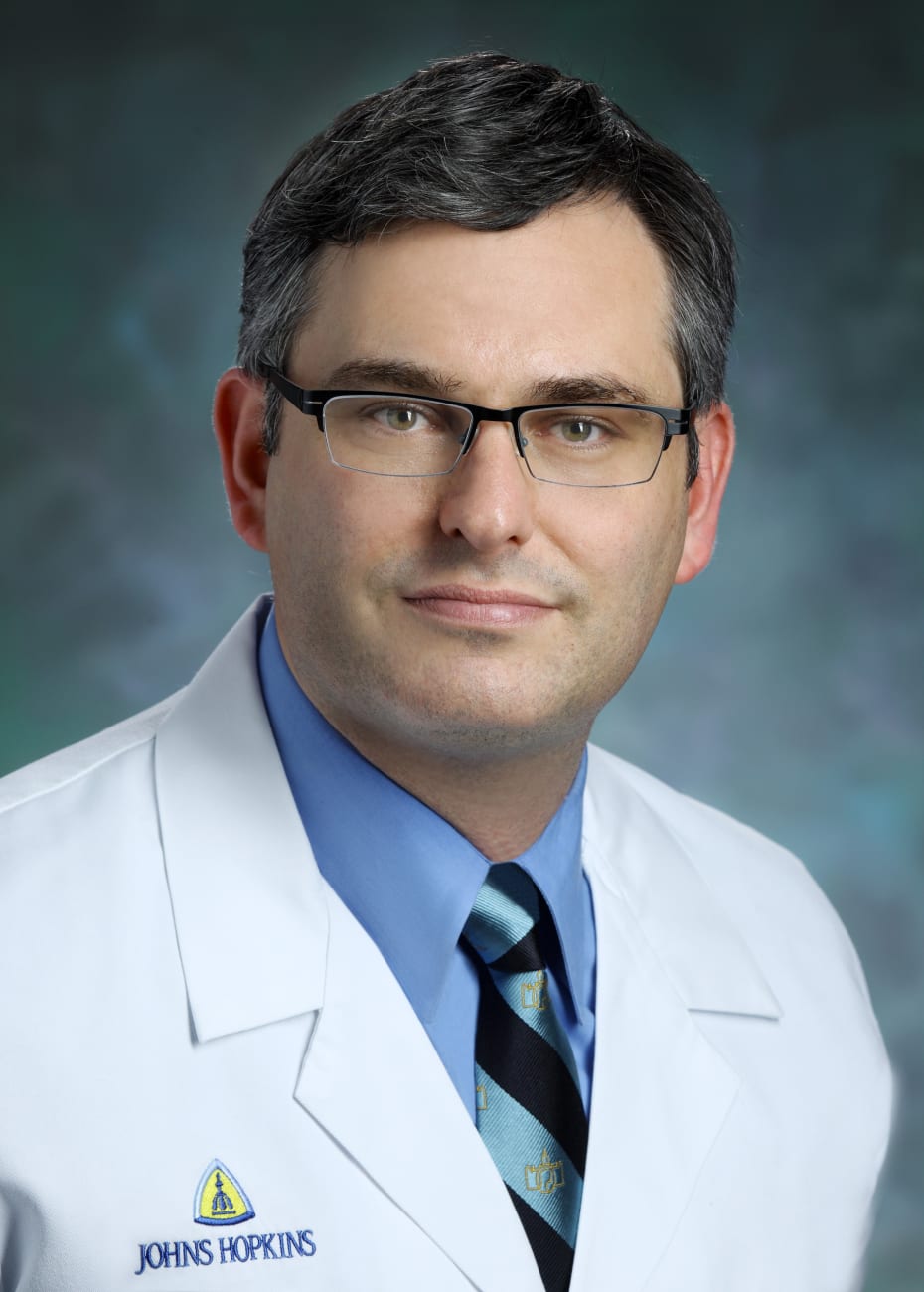
Advancing Care for Retrograde Cricopharyngeal Dysfunction
Retrograde cricopharyngeal dysfunction — a condition that prevents easy belching or burping — leads to uncomfortable bloating, gurgling and chest pressure. Fortunately, dilation and botulinum toxin injection of the cricopharyngeus muscle can improve patients’ quality of life. However, research on this condition has only taken place in single-institution, retrospective case series, so questions about treatment approaches, botulinum toxin doses and side effects persist in the medical community. Lee Akst — laryngologist and director of the Johns Hopkins Voice Center — leads a national consortium of laryngologists at six academic medical centers that is studying retrograde cricopharyngeal dysfunction to advance patient care.
“I think we’re ready nationally for a multi-institutional, prospective study on this rare condition,” says Akst. “By combining our experiences, hopefully we’ll be able to answer questions about how best to treat retrograde cricopharyngeal dysfunction.”
Gender-Affirming Voice Care
The Department of Otolaryngology–Head and Neck Surgery partners with the Johns Hopkins Center for Transgender Health to offer gender-affirming voice care for patients who are gender diverse and transgender.
“Voice is an important aspect of gender expression,” says speech-language pathologist Ashley Davis. “Helping patients achieve a voice that aligns with their gender identity can be a critical part of their experience.”
Gender-affirming voice care may include speech-language therapy or behavioral modification, as well as surgical adjustments in vocal cord function, to help achieve a particular pitch range. Laryngologists Akst and Simon Best offer surgeries to help elevate fundamental frequency and procedures to help lower pitch, assisting patients with achieving voices they feel are more authentic to themselves.
Medical Therapy for Idiopathic Subglottic Stenosis
Idiopathic subglottic stenosis (iSGS) is a rare debilitating disease that exclusively affects women. Progressive scar tissue develops spontaneously and narrows the airway, severely limiting the ability to breathe and communicate. Treatment for iSGS is procedural, with the goal of increasing the airway diameter to improve breathing and the voice. Despite advances in understanding of laryngotracheal stenosis pathophysiology and outcomes, there is still an urgent need to improve approaches to treatment.
Johns Hopkins laryngologist Alexander Hillel, and clinical trials coordinator Sarah Collins and colleagues, are leading the first interventional trial for treatment of iSGS. The trial is designed to evaluate the safety of the drug everolimus for patients with iSGS, evidence of which may lead to a nationwide, phase II clinical trial to assess the drug’s effectiveness.
Developing New Treatment Paradigms for Obstructive Sleep Apnea
Johns Hopkins sleep and airway surgeon Kevin Motz and pulmonary sleep medicine colleague Luu Van Pham recently launched a one-of-a-kind, multidisciplinary clinic for patients with obstructive sleep apnea who are intolerant of continuous positive airway pressure therapy. The researchers are collaborating to pioneer treatment plans — surgical and nonsurgical — to provide relief for patients and mitigate risk.
For patients who meet criteria, part of the treatment approach includes use of hypoglossal nerve stimulation. Motz leads a research program and clinical trial aimed at improving outcomes for patients in therapy through advanced physiologic measurements of upper airway collapsibility.
To refer a patient, call 443-997-6467 or email JHOtoAccess@jhmi.edu.



